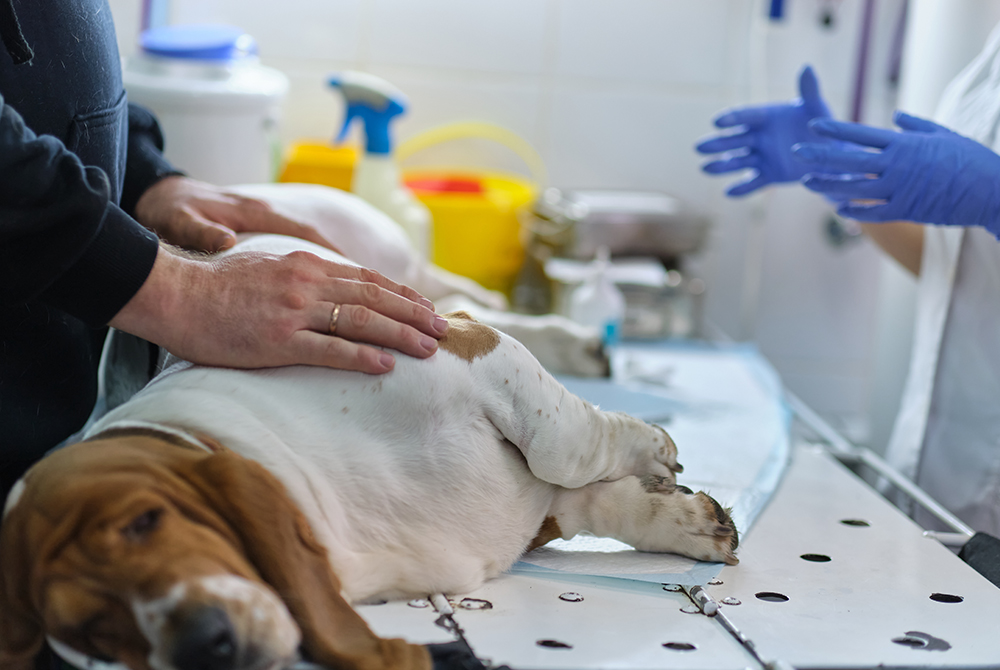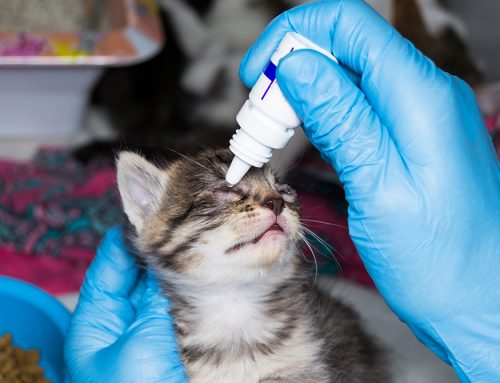Overview
Pyometra is a serious and potentially life-threatening condition that affects female dogs and cats. It involves the accumulation of pus in the uterus, which can occur due to hormonal changes or bacterial infections. Prompt diagnosis and treatment are crucial to ensure the best outcome for your pet.
Causes and Risk Factors
Pyometra typically occurs in intact (non-spayed) female pets, usually after they have gone through a heat cycle. The primary causes include:
- Hormonal Imbalance: Elevated levels of progesterone during the estrous cycle can cause the uterine lining to thicken, making it more susceptible to infection.
- Bacterial Infection: The bacteria commonly responsible for pyometra include Escherichia coli (E. coli).
Symptoms
The symptoms of pyometra can vary but often include:
- Excessive Thirst and Urination: Increased drinking and urination due to toxins in the bloodstream.
- Abdominal Enlargement: A noticeable increase in abdominal size due to the accumulation of pus.
- Vaginal Discharge: Pus or bloody discharge from the vulva.
- Lethargy: Decreased energy levels and reluctance to move.
- Loss of Appetite: Reduced interest in food.
- Vomiting or Diarrhea: Gastrointestinal upset.
Diagnosis
If you suspect your pet may have pyometra, it is essential to seek veterinary care immediately. At Mission Veterinary Clinic, we can perform the following diagnostic procedures:
- Physical Examination: Assessment of symptoms and overall health.
- Blood Tests: To check for signs of infection and organ function.
- Ultrasound or X-rays: Imaging to visualize the uterus and confirm the presence of pus.
Treatment
Treatment for pyometra typically involves:
- Surgery (Ovariohysterectomy): The most common and effective treatment is the surgical removal of the uterus and ovaries. This procedure is critical to remove the source of infection and prevent further complications.
- Antibiotics: To manage and treat the infection. Antibiotics are often administered before and after surgery.
- Supportive Care: Includes fluids, pain management, and monitoring of vital signs.
Prevention
The best way to prevent pyometra is through spaying your pet. Spaying removes the ovaries and uterus, eliminating the risk of pyometra and other reproductive health issues.
Contact Us
If you notice any symptoms of pyometra or have concerns about your pet’s health, please visit us at Mission Veterinary Clinic. We are an urgent care facility located at:
16915 San Fernando Mission Blvd, Granada Hills, CA 91344
For more information or to get immediate assistance, call us at 818-363-8143. Please note that we operate on a walk-in basis and do not accept appointments.
Your pet’s health is our priority. We are here to provide the urgent care your furry friend needs.










Leave A Comment